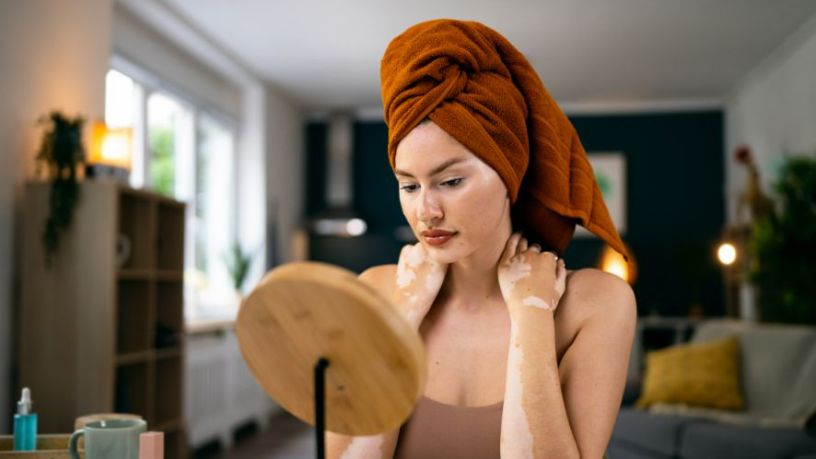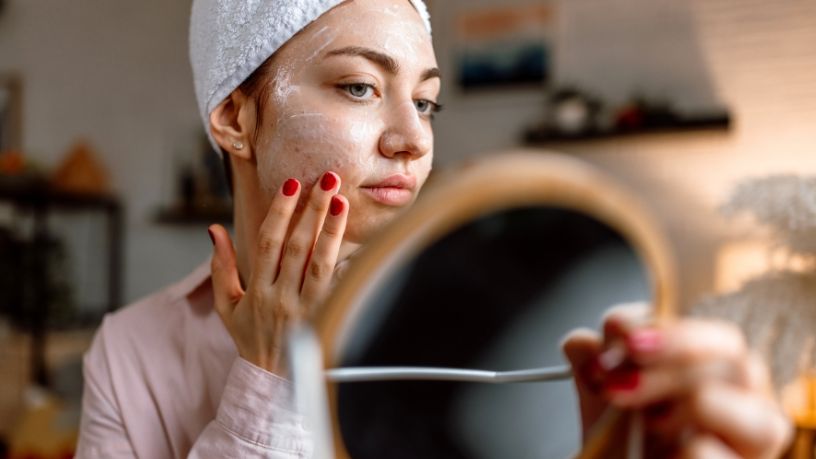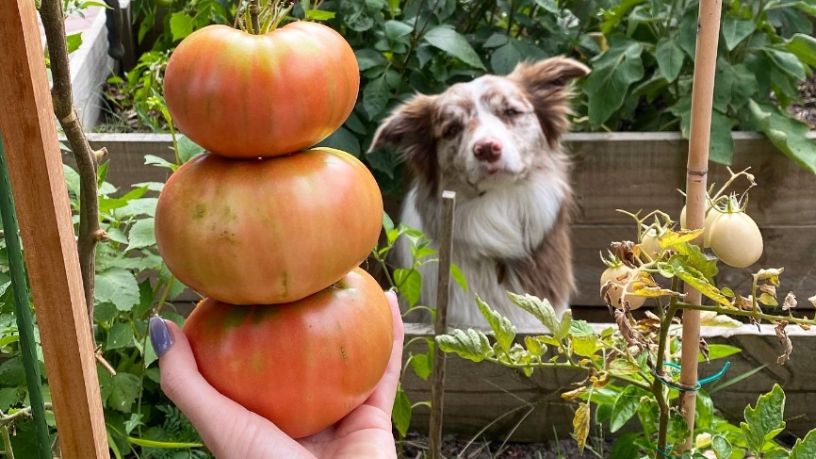Greenwashing is when a brand claims to be good for the planet, but are still using harmful chemicals, non-recyclable packaging and not supporting the environment.
Key takeaways
Read labels before you buy and look for certifications that prove the product is what it claims to be.
It can be hard to tick every green/clean/ethical box in one product. Figure out what’s most important to you and seek out products that are supporting that cause.
Finding the right beauty product can be hard enough, but if you’re in the market for something natural, clean, green or ethical, you’ve got to be on your game.
That earthy looking box with the green logo says ‘made with natural ingredients’, so you take it home, only to realise it’s packed with parabens or contains chemicals you’re trying to avoid.
Sound familiar? If it does, then you’ve been greenwashed.
What is greenwashing?
Greenwashing is when a brand or company spends time or money marketing themselves as being sustainable, when in reality they’re not making a meaningful difference.
It’s false advertising and can be blatant, unintentional, or somewhere in between.
Greenwashing is not to be confused with green marketing, which is a true reflection of the work an organisation is doing.
Greenwashing isn’t exclusive to the beauty industry and companies selling everything from cars to cabinetry can do it. But when you’re putting something directly on your face or body you really want to know that your face cream, lipstick or primer is what it claims to be.
Why greenwashing happens
Clean, green, natural and ethical cosmetics are big business right now with consumers happy to pay more for products that are ethical or sustainable.1
The problem is that terms like ‘green’, ‘ethical’ and ‘natural’ are unregulated, meaning anyone can use them. This lack of governance leaves all industries open to greenwashing.
While many brands invest time and money to make their products better for people and the planet, others don’t change anything except their marketing and advertising campaigns.
6 ways to avoid greenwashing
1. Be clear on your purpose
There are many great brands out there creating clean, green, natural, organic or ethical products. But you’re unlikely to find one product that ticks all the boxes.
Clean beauty products are not necessarily natural, organic or green.
And organic skin care might be natural, but natural isn’t necessarily organic, clean, ecofriendly or cruelty-free.
As a consumer, you need to be clear on what you want so you can find a product that ticks the right boxes for you.
2. Read between the lines
A label might read ‘free from parabens and sulphates’, but does it contain other chemicals or potential irritants? Make sure you read the label to ensure you’re comfortable with the ingredients it does contain.
Also look for whole claims instead of vague taglines like ‘naturally derived’, or ‘vegan ingredients’ which may only refer to a small part of the product.
Brands making a big impact will be at pains to tell you the percentage of natural, organic or vegan ingredients their product contains, because they’ve worked hard to do so.
3. Look for certifications
Look for trusted certifications, logos or seals of approval from reputable governing bodies when choosing a product.
When it comes to organic, look for certified organic.
When it comes to cruelty-free, Leaping Bunny Australia, Cruelty Free International and PETA cruelty free are all good stamps of approval.
For clean beauty, look for products that are Safe Cosmetics Australia (SCA) verified, as they’re independently vetted every 12 months.2
4. Consider the packaging
If you’re buying a product that’s labelled sustainable but is packaged in unnecessary amounts of single use plastic, that could be a red flag.
That doesn’t necessarily mean you’ve been greenwashed, but it might be a sign the company isn’t fully committed to going green.
Read the label and look at whether their packaging is recyclable, refillable, biodegradable or compostable.
5. Read the brand story
A brand that’s making a stand or a difference will likely provide details of the purpose on the packaging or on the website.
There are many profit-for-purpose organisations which support a particular cause and run their operations in line with it.
Don’t discount the little guy. Supporting small, local, eco-friendly businesses is a great way to enact change in your corner of the world.
Smaller brands are sometimes the most transparent about all aspects of their operations because they’re not attached to a big corporation.
6. Consider the cost
As the old saying goes: if it sounds too good to be true, it probably is.
The reality is creating products that are better for people, animals or the planet costs money. So, if you see a bargain basement product, don’t buy it blindly.
Read the label and be discerning.
That doesn’t mean you have to spend a fortune or buy the most expensive product on the market. It’s just about being mindful.
There are some great, lower cost, clean, green, ethical products out there.

At Bupa, trust is everything
Our health and wellbeing information is regularly reviewed and maintained by a team of healthcare experts, to ensure its relevancy and accuracy. Everyone's health journey is unique and health outcomes vary from person to person.
This content is not a replacement for personalised and specific medical, healthcare, or other professional advice. If you have concerns about your health, see your doctor or other health professional.
1Faelli, F., Blasberg, J., Johns, L., & Lightowler, Z. (2023). Selling Sustainability Means Decoding Consumers. Bain & Company.
2Safe Cosmetics Australia. (2024). Certified by Safe Cosmetics Australia. Safe Cosmetics Australia.
You might also like...
Natural vs organic skincare: What’s the difference?
What’s the difference between ‘natural’ and ‘organic’ skincare, and are these products really better for your face and the planet?
What is skin cycling?
If you’ve been scrolling through your socials lately, you might have noticed a new skincare routine making the rounds. But what exactly is skin cycling?
Can gardening improve your health and help the planet?
Here are some ways you can get started on your gardening journey and make the most of nature to improve your physical and mental health.
5 skincare mistakes to stop making today
From under-cleansing to over-exfoliating, we all make mistakes with our skin. Learn about how to treat your skin with the love and care it deserves.





